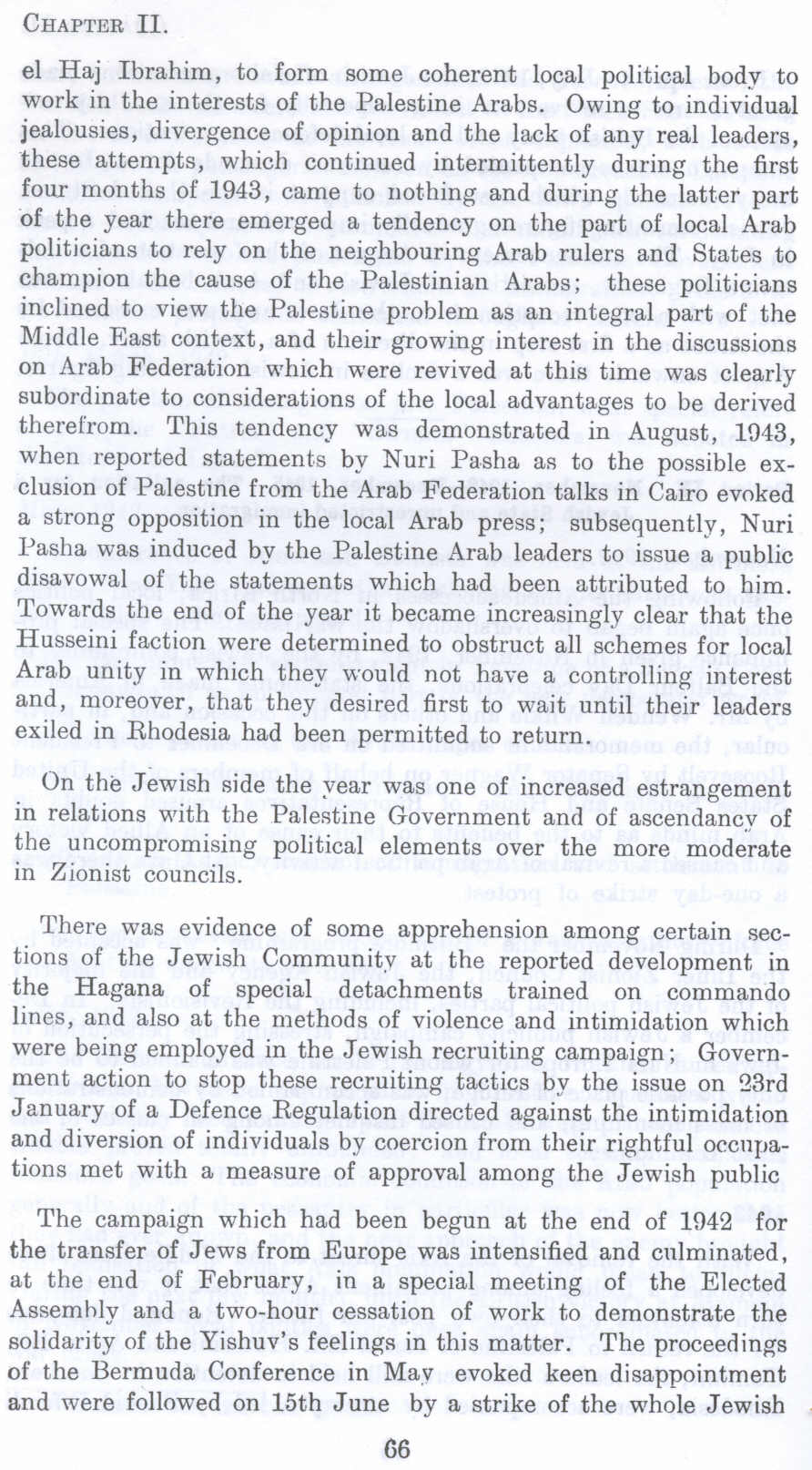| Prev | Next |  |
| Prev | Next |
| PalestineRemembered | About Us | Oral History | العربية | |
| Pictures | Zionist FAQs | Haavara | Maps | |
| Search |
| Camps |
| Districts |
| Acre |
| Baysan |
| Beersheba |
| Bethlehem |
| Gaza |
| Haifa |
| Hebron |
| Jaffa |
| Jericho |
| Jerusalem |
| Jinin |
| Nablus |
| Nazareth |
| Ramallah |
| al-Ramla |
| Safad |
| Tiberias |
| Tulkarm |
| Donate |
| Contact |
| Profile |
| Videos |
British Mandate: A Survey of Palestine: Volume I - Page 66 |
Disclaimer
The above documents, article, interviews, movies, podcasts, or stories reflects solely the research and opinions of its authors. PalestineRemembered.com makes its best effort to validate its contents.


Post Your Comment
*It should be NOTED that your email address won't be shared, and all communications between members will be routed via the website's mail server.
el Haj Ibrahim, to form some coherent local political body to work in the interests of the Palestine Arabs. Owing to individual jealousies, divergence of opinion and the lack of any real leaders, these attempts, which continued intermittently during the first four months of 1943, came to nothing and during the latter part of the year there emerged a tendency on the part of local Arab politicians to rely on the neighbouring Arab rulers and States to champion the cause of the Palestinian Arabs; these politicians inclined to view the Palestine problem as an integral part of the Middle East context, and their growing interest in the discussions on Arab Federation which were revived at this time was clearly subordinate to considerations of the local advantages to be derived there from. This tendency was demonstrated in August, 1043, when reported statements by N uri Pasha as to the possible exclusion of Palestine from the Arab Federation talks in Cairo evoked a strong opposition in the local Arab press; subsequently, Nuri Pasha was induced by the Palestine Arab leaders to issue a public disavowal of the statements which had been attributed to him. Towards the end of the year it became increasingly clear that the Husseini faction were determined to obstruct all schemes for local Arab unity in which they would not have a controlling interest and, moreover, that they desired first to wait until their leaders exiled in Rhodesia had been permitted to return.
On the Jewish side the year was one of increased estrangement in relations with the Palestine Government and of ascendancy of the uncompromising political elements over the more moderate in Zionist councils.
There was evidence of some apprehension among certain sections of the Jewish Community at the reported development in the Hagana of special detachments trained on commando lines, and also at the methods of violence and intimidation which were being employed in the Jewish recruiting campaign; Government action to stop these recruiting tactics by the issue on 23rd January of a Defence Regulation directed against the intimidation and diversion of individuals by coercion from their rightful occupations met with a measure of approval among the Jewish public
The campaign which had been begun at the end of 1942 for the transfer of Jews from Europe was intensified and culminated, at the end of February, in a special meeting of the Elected Assembly and a two-hour cessation of work to demonstrate the solidarity of the Yishuv's feelings in this matter. The proceedings of the Bermuda Conference in Mav evoked keen disappointment and were followed on 15th June by a strike of the whole Jewish
PAGE 66